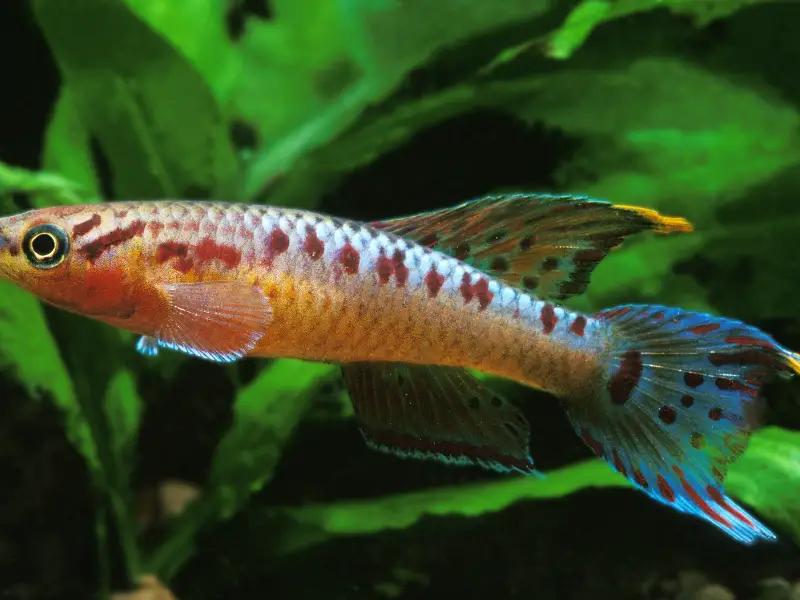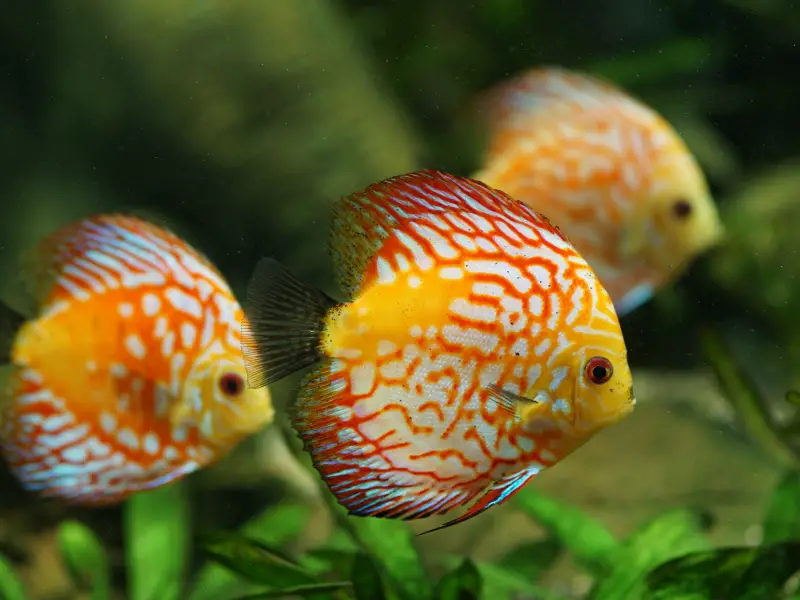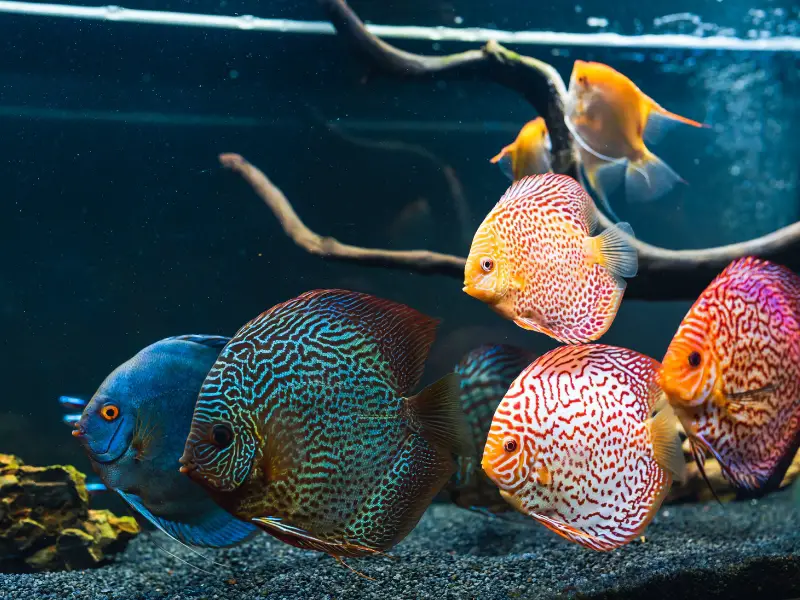Fish owners often wonder if their fish can survive ich without treatment. Ich, also known as white spot disease, is a common parasitic infection that affects freshwater and saltwater fish. It is caused by a protozoan parasite that attaches itself to the fish’s skin and fins, causing white spots to appear.
While some fish may be able to survive ich without treatment, it is not recommended to rely solely on their immune system to fight off the infection. Ich can weaken the fish’s immune system, making them more susceptible to other diseases and infections. Additionally, severe cases of ich can cause significant damage to the fish’s gills and skin, leading to permanent health issues or death.
Therefore, it is important for fish owners to take preventive measures to avoid ich outbreaks and to treat any infected fish promptly. This may include maintaining a clean and well-filtered aquarium, avoiding overcrowding, and using medication to treat ich when necessary. By taking these steps, fish owners can help ensure the health and well-being of their aquatic pets.
Understanding Ich

Ich, short for Ichthyophthirius multifiliis, is a common parasitic disease that affects freshwater fish. It is also known as white spot disease due to the appearance of white spots on the fish’s body and fins. Ich is caused by a protozoan parasite that attaches itself to the fish’s skin, fins, and gills and feeds on its blood and tissues.
The life cycle of Ich consists of three stages: trophont, tomont, and theront. The trophont stage is when the parasite attaches itself to the fish and starts feeding. The tomont stage is when the parasite falls off the fish and encysts itself in the environment, waiting to develop into the theront stage. The theront stage is when the parasite emerges from the cyst and swims freely in the water, searching for a new host.
Ich is highly contagious and can spread rapidly among fish in the same tank. It can also survive in the environment for several days or weeks, depending on the temperature and humidity. Ich is more common in tanks with poor water quality, overcrowding, and stress, as these conditions weaken the fish’s immune system and make them more susceptible to the parasite.
Symptoms of Ich include white spots on the fish’s body and fins, flashing or rubbing against objects, gasping for air, lethargy, loss of appetite, and ultimately, death if left untreated. Ich can be treated with various medications, such as malachite green, formalin, or copper, which kill the parasite at different stages of its life cycle. However, some fish may be sensitive to these medications, and overdosing can be harmful or even fatal.
In conclusion, understanding the life cycle and symptoms of Ich is crucial for preventing and treating this common fish disease. Proper tank maintenance, water quality, and stress reduction can help prevent Ich from infecting fish in the first place. If Ich is suspected, prompt treatment with the appropriate medication can help save the affected fish and prevent the spread of the disease to other fish in the tank.
Can Fish Survive Ich Without Treatment
Ich, also known as white spot disease, is a common parasitic infection that affects fish. It is caused by the protozoan parasite Ichthyophthirius multifiliis, which attaches itself to the fish’s skin and gills and feeds on its blood and tissue fluids. Although ich can be fatal if left untreated, some fish can survive the infection without any treatment.
The ability of fish to survive ich without treatment depends on several factors, including the species of fish, the severity of the infection, and the overall health of the fish. Some fish species, such as catfish and goldfish, are more resistant to ich than others and may be able to survive mild infections without any treatment.
However, if the infection is severe, or if the fish is already weakened by other factors such as poor water quality or stress, the chances of survival without treatment are lower. In such cases, prompt treatment is necessary to prevent the infection from spreading and causing further damage to the fish.
It is important to note that even if a fish appears to have survived an ich infection without treatment, it may still be carrying the parasite and can spread it to other fish in the aquarium. Therefore, it is always recommended to treat ich infections promptly to prevent further spread and to ensure the health and well-being of all fish in the aquarium.
Symptoms of Ich

Ich is a common disease in fish that is caused by a parasitic protozoan called Ichthyophthirius multifiliis. The disease is also known as white spot disease because of the appearance of small white spots on the fish’s body. Here are some of the common symptoms of ich:
- White spots: The most common symptom of ich is the appearance of small white spots on the fish’s body. These spots can be seen on the fins, gills, and body of the fish. The spots are usually round or oval in shape and are about the size of a pinhead.
- Scratching: Fish infected with ich will often scratch themselves against objects in the aquarium. This is because the parasite causes irritation and itching on the fish’s skin.
- Rapid breathing: Ich can cause respiratory problems in fish, which can lead to rapid breathing or gasping for air.
- Loss of appetite: Fish infected with ich may lose their appetite and become lethargic.
- Clamped fins: Fish may also exhibit clamped fins, which is when the fins are held close to the body.
It is important to note that these symptoms can also be caused by other diseases or environmental factors. Therefore, it is important to properly diagnose the disease before beginning treatment.
Common Ich Treatments
There are several treatments available for ich, some of which are more effective than others. The following are some of the most common treatments used to treat ich in fish:
- Salt Treatment: One of the most popular treatments for ich is the salt treatment. This treatment involves adding salt to the aquarium water to create a high-salinity environment that is toxic to ich. The recommended concentration is 1-3 tablespoons of salt per gallon of water, and the treatment should last for at least 10 days.
- Heat Treatment: Another effective treatment for ich is heat treatment. This involves raising the temperature of the aquarium water to between 82-86°F for at least 10 days. This high temperature will accelerate the life cycle of ich, causing it to reproduce and die off more quickly.
- Medications: There are several medications available that can be used to treat ich, including malachite green, formalin, and copper sulfate. These medications can be effective, but they can also be toxic to fish if not used properly. It is important to follow the instructions carefully when using these medications.
- Natural Remedies: There are also several natural remedies that can be used to treat ich, including garlic, tea tree oil, and Indian almond leaves. These remedies are not as effective as the other treatments, but they can be useful in mild cases of ich.
It is important to note that not all treatments will work for all types of fish, and some treatments may be more effective than others depending on the severity of the infection. It is also important to follow the instructions carefully when using any treatment, as improper use can be harmful to fish.
Preventing Ich

Preventing ich is a crucial step in ensuring the health and well-being of your fish. While it may not always be possible to completely eliminate the risk of ich, there are several steps you can take to reduce the likelihood of an outbreak.
One of the most important things you can do is to maintain good water quality. This means performing regular water changes and monitoring the levels of ammonia, nitrite, and nitrate in your aquarium. Keeping the water clean and well-oxygenated can help to reduce stress on your fish and make them less susceptible to disease.
Another key factor in preventing ich is maintaining a healthy diet for your fish. Providing a varied and balanced diet that includes high-quality protein and essential vitamins and minerals can help to boost their immune system and improve their overall health.
It’s also important to avoid overcrowding your aquarium. Overcrowding can lead to increased stress on your fish and make them more susceptible to disease. Make sure you have enough space for your fish to swim and thrive, and avoid adding too many fish at once.
Finally, consider quarantining new fish before adding them to your aquarium. This can help to prevent the introduction of new diseases and parasites, including ich. Keep new fish in a separate tank for at least a few weeks to monitor their health and ensure they are not carrying any infections.
By following these simple steps, you can help to reduce the risk of ich and other diseases in your aquarium and keep your fish happy and healthy for years to come.
Long-Term Implications of Ich
If left untreated, ich can have long-term implications for fish. Even if the fish survives the initial infection, it may suffer from weakened immune systems that make them more susceptible to future infections.
Additionally, ich can cause damage to the fish’s skin and gills, which can lead to secondary infections or other health issues. In severe cases, ich can even lead to death.
Fish that have survived an ich infection may also experience lasting behavioral changes. They may become more skittish or timid, or they may show signs of stress or aggression.
Overall, it is important to treat ich as soon as possible to minimize the long-term implications for fish. Regular water changes, proper nutrition, and a stress-free environment can also help prevent ich and other infections from occurring in the first place.
Frequently Asked Questions
Can fish recover from ICH by themselves?
It is possible for fish to recover from ICH without treatment, but it is not recommended. Fish that are stressed or have weakened immune systems are more likely to succumb to the disease. Even if a fish appears to recover on its own, it may still be carrying the parasite and could become re-infected or spread the disease to other fish.
What happens if ich goes untreated?
If left untreated, ICH can be fatal for fish. The parasite can cause significant damage to their gills, skin, and internal organs. Fish may become lethargic, lose their appetite, and develop secondary infections. In severe cases, they may experience difficulty breathing or die from organ failure.
Can I save my fish with ICH?
Yes, ICH can be treated with medication and other methods. It is important to start treatment as soon as possible to prevent the parasite from causing further damage and spreading to other fish. There are a variety of treatments available, including medications, heat therapy, and salt baths. It is recommended to consult with a veterinarian or aquatic specialist for guidance on the best treatment options for your fish.
Will ich treatment hurt healthy fish?
Most ICH treatments are safe for healthy fish when used correctly. However, some medications may have side effects or be harmful to certain species of fish. It is important to carefully follow the instructions on any medication or treatment and monitor your fish closely for any adverse reactions. If you are unsure about a specific treatment, it is recommended to consult with a veterinarian or aquatic specialist for guidance.
Related Articles: